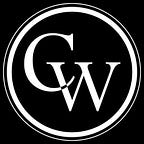Junk Bond Sales Soar in Search for Higher Yields
The junk bond market has gained momentum this year as investors seek higher yields on their investments. Companies with below-investment grade credit ratings issue junk bonds with high-yield debt. A number of companies, such as Coinbase, Crocs Inc., and SeaWorld Entertainment Inc., have seen increased interest in their bonds.
This year has been an exceptionally strong year for the $3 trillion junk bond market. U.S. companies have sold more than $786 billion of low-rated companies’ debt this year. Because of this, sales of junk-rated bonds and loans have not been this high since 2008.
What Are Junk Bonds?
Non-investment grade bonds have a higher risk of default. This means the risk the company will miss its interest payments is higher for junk bonds than for investment-grade debt.
For a company’s debt to earn an investment-grade rating, it must receive an that rating from at least one of three credit rating agencies. The three main credit rating agencies in the United States are Standard & Poor’s, Moody’s Investors Service, and Fitch Ratings. If S&P or Fitch give a company’s bonds a credit rating of BB or below, they are junk bonds. According to Moody’s rating system, bonds with a credit rating of Ba or lower are junk bonds.
Market Momentum
As federal reserve interest rates hover near 0%, investors have looked to other corners of the market for higher-yield investment opportunities. Low interest rates generally impact bond markets by lowering yields. Given the relatively low yields of U.S. Treasuries and investment-grade corporate bonds, investors have turned their attention to the junk bond market.
“Corporations weathered the storm last year and have positioned themselves really well,” stated Collin Martin, a fixed income strategist at the financial services firm Charles Schwab. “Couple that with yield-starved investors going into anything and everything that offers better than a 0% yield, and it’s really the perfect storm to see spreads drop to those pre-financial levels.”
Companies with below investment-grade ratings generally have high debt relative to their earnings. However, despite the higher risk profile of the junk bond market, investors have reasons to feel more confident this year.
“High-yield indices are higher in credit quality,” said Bill Ahmuty, head of the SPDR Fixed Income Group at State Street Global Advisors. The SPDR, pronounced “spider,” refers to a family of exchange-traded funds (ETFs) managed by State Street. The name is an acronym for Standard & Poor’s Depositary Receipts, the first ETF in the group. Standard & Poor’s is a large credit rating agency.
“Because of all the downgrades that we saw last year, the credit quality in the market is higher than it’s ever been historically,” Ahmuty said. “That’s helping to drive overall yields lower and spreads a little lower.”
Federal stimulus money has partly fueled the economic rebound. This has further bolstered companies with weaker credit ratings.
Junk Bond Sales in High Growth Companies
In September 2021, Coinbase sold $2 billion in junk bonds to investors. The cryptocurrency exchange company increased the offering size from $1.5 billion to $2 billion after witnessing high investor interest. Both 7 and 10-year bonds of Coinbase were sold at interest rates of 3.375% and 3.625%, respectively.
MicroStrategy, another crypto company, also saw high investor demand in a $500 million junk bond offering it completed in June. The provider of cloud-based services has purchased over 100,000 bitcoin, worth roughly $3 billion at current market prices. MicroStrategy intends to use some of the proceeds raised from the sale of its junk bonds to purchase more bitcoin.
Crocs, the maker of colorful clogs, sold $350 million of its junk bonds in August. The bonds pay 4.25% in interest and will mature in 10 years. The shoe company plans to use the proceeds to for capital expenditures and to fund stock buybacks.
Some private equity-backed companies have issued low-rated bonds to fund mergers and acquisitions. ASP Unifrax Holdings Inc., a specialty materials company that makes fiber products and other high-performance materials, sold $1.2 billion of single-B and triple-C-plus rated bonds to investors in September. The proceeds will be primarily used to fund the acquisition of Lydall Inc., another specialty materials company. Unifrax is owned by the private equity firm Clearlake Capital.
Junk Bond Market Outlook
Many investment analysts predict that junk bond sales will moderate by year-end. Rising inflation could dampen the appeal of the bond markets. Although the Federal Reserve has previously stated that interest rates will hold steady until 2022, inflationary pressures could lead the Fed to push up interest rates, which could kill the credit rally.
